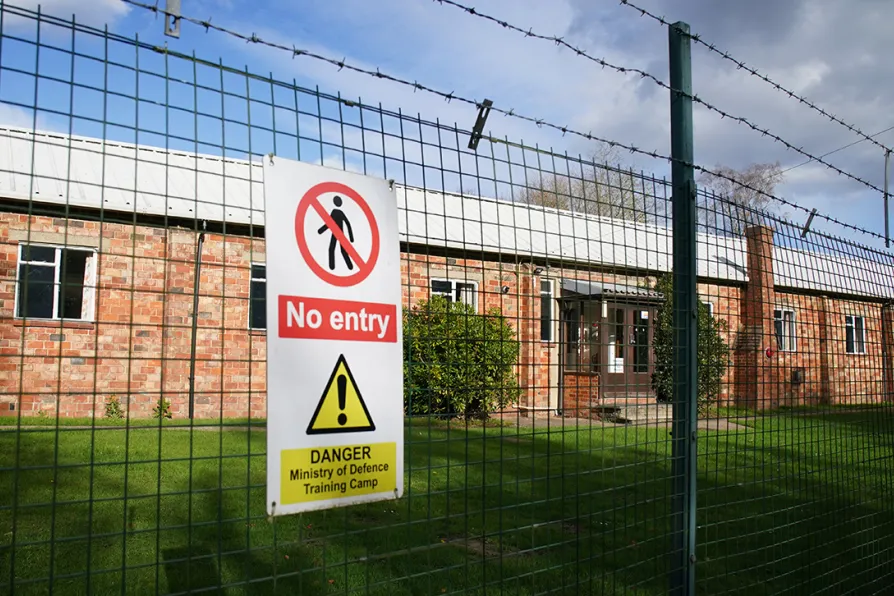Error message
An error occurred while searching, try again later.
 Crowborough Training Camp in East Sussex, one of two barracks which will be used to house asylum seekers ‘temporarily,’ October 28, 2025
Crowborough Training Camp in East Sussex, one of two barracks which will be used to house asylum seekers ‘temporarily,’ October 28, 2025
ASYLUM accommodations, particularly barracks and hotels, are retraumatising survivors of torture, campaigners warned today.
Survivors fleeing “unimaginable” sexual and physical violence are being forced to share rooms with strangers, live in unsafe and unsanitary conditions and are repeatedly uprooted from specialist healthcare, Freedom from Torture said.
The conditions trigger flashbacks, severe anxiety and a rapid decline in mental health, according to the group’s new report, A Place to Heal.
One survivor said being placed in a hotel room with an unknown man “felt like being back in the cell again.”
Another survivor from the Democratic Republic of Congo (DRC), identified only as Miriame, said she was forced to share a hostel dormitory with five others while pregnant and alone.
Constant moves between London, Dover and Margate left her feeling “like a prisoner” unable to rest or access consistent care.
“We didn’t have any privacy,” she said. “It was stressful every single day. Living in Margate was not a good experience for me — it was like a prison.”
Mwa Mbuyi Kapinga, also from the DRC, spent seven-and-a-half years in asylum accommodation.
“You are a number. You are a statistic,” she said. “Someone coming from torture … I was struggling so much. I couldn’t sleep.
“I was having flashbacks, headaches. You are on edge all the time.”
Freedom from Torture’s Sile Reynolds, an author of the report, said the organisation sees “first-hand the devastating impact unsafe and unsuitable asylum housing has on survivors of torture” through its therapy services.
“These are men, women and children who are trying to recover after unimaginable cruelty,” she said.
“They need stability, privacy and safety — not another source of fear.
“Better quality and faster asylum decisions would allow the government to empty the hotels, while locally tailored and resourced housing models would mean that refugees could rebuild their lives in thriving communities.”
The government is considering the use of defence sites for migrant accommodation as part of its effort to phase out hotels, following recent far-right protests and violence.
The practice was being transitioned out under the former Tory government due to high costs.
As of June, about 32,000 asylum-seekers were being housed in hotels, down from a peak of more than 56,000 in 2023, but still 2,500 more than at the same point last year.
The Home Office was approached for comment.










